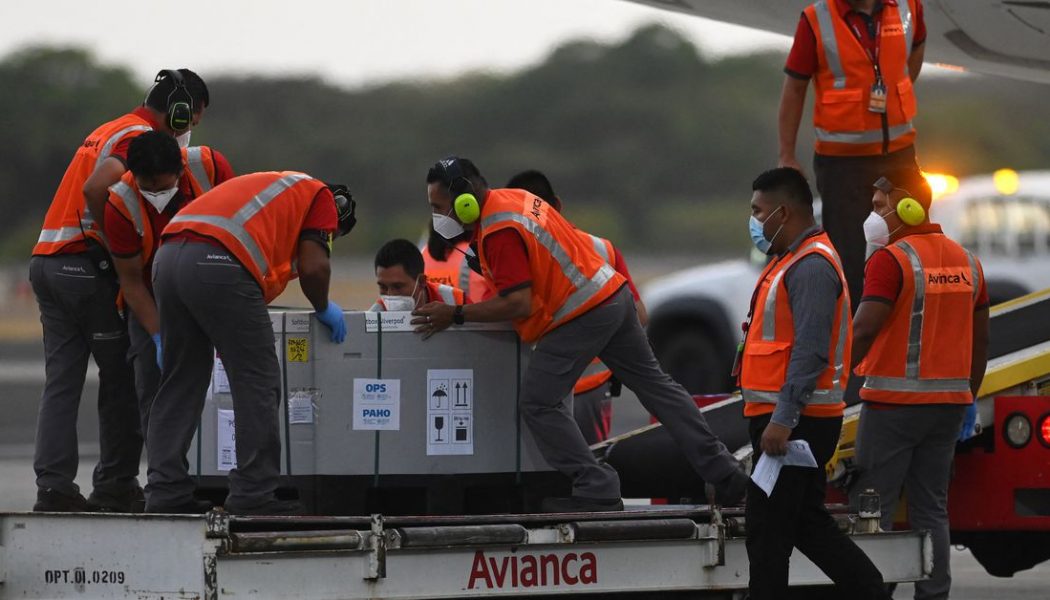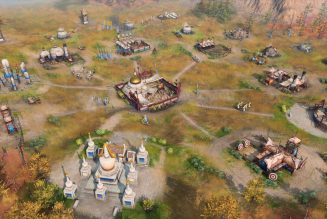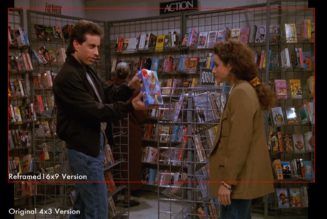
Millions of doses of COVID-19 vaccines currently sitting in United States warehouses are now destined for vaccination sites in Mexico and Canada, according to the White House. The donation marks one of the US’ first steps into the dawning — and deeply contentious — world of late-stage pandemic vaccine diplomacy.
The neighborly gesture is reportedly a loan — the US expects that they will return the favor and hand over some vaccine doses in the future. The US can certainly afford to be generous with these doses. The AstraZeneca vaccine that it’s donating hasn’t been authorized in the US. The country reserved doses just in case it is eventually given the green light by the FDA, but the vaccine is still being tested in the US. Results from that trial are expected soon, but functionally, the US has a whole bunch of doses sitting around that it can’t do anything with.
But other countries can. Many places have given AstraZeneca the all-clear, including Canada and Mexico. And the US has lined up enough authorized vaccines to innoculate the entire US populations. That’s left many people pushing the Biden administration to let the doses go to countries that need them. Now, it seems, they are finally going to do just that.
(Quick aside: Complicating everything, there’s a whole mess with the AstraZeneca vaccine rollout in Europe — some weird blood clotting showed up in a few patients, causing several countries to halt vaccinations. Vaccinations resumed this week, with several regulators — and AstraZeneca — insisting that the vaccine is safe.)
The few million doses being handed to Mexico and Canada are a start. But on the global stage, the US is a bit late to the party when it comes to vaccine donation. China, India, and Russia, among others, have all been pushing this particular version of soft power for a while now. India, which has a massive pharmaceutical manufacturing industry, is in a prime position to donate vaccines to other countries. The UAE is jockeying to become a major vaccine hub in the Middle East, both buying and distributing vaccines. China and Russia have both developed their own vaccines and are using them to bolster alliances around the world. So now you’ve got multiple countries pushing their own vaccine supplies (and their own national agendas) to countries who can’t afford to negotiate their own deals with a limited number of manufacturers.
Then there’s COVAX. COVAX is a vaccine distribution effort put together by international organizations including the World Health Organization. Its goal is to make sure that poorer countries also have access to COVID-19 vaccines. So far, it’s shipped about 30 million vaccines around the world. That’s not nothing, but a small fraction of the more than 420 million vaccine doses administered worldwide. And it’s well short of COVAX’s goal of administering more than one billion doses to poorer countries by the end of this year.
This has left COVAX very annoyed at all the bilateral wheeling-dealing happening between countries, and between countries and drug companies.
“We have made great progress,” WHO Director-General Tedros Adhanom Ghebreyesus said in February. “But that progress is fragile. We need to accelerate the supply and distribution of COVID-19 vaccines, and we cannot do that if some countries continue to approach manufacturers who are producing vaccines that COVAX is counting on. These actions undermine COVAX and deprive health workers and vulnerable people around the world of life-saving vaccines.”
Biden has pledged $4 billion to COVAX, but international pressure is increasingly building for wealthy countries like the US to put their doses where their wallets are.
“From a U.S. perspective, we’re losing a bit of the messaging war out there,” Krishna Udayakumar, director of Duke University’s Global Health Innovation Center told Axios last month. “If we look six months from now, it may well be the fact that the U.S. has donated more doses than any other country in the world. But right now the storyline is how we’re buying more and hoarding more of the supply.”
The US appears to be trying to change that storyline — but it’s still taking its own diplomatic path to get there. In March, President Biden met with leaders of Australia, Japan, and India on a plan to boost production of vaccines, and flood countries in Asia and the Pacific with vaccines this year. At the same time, there’s internal pressure for the US government to quickly roll out the vaccines they have to their own population, which, due to the Trump administration’s own bungling of the pandemic has suffered the highest official death toll of any country in the world.
As the rollout continues, this is all going to keep happening. Countries will try to vaccinate the people in their borders, and they’ll simultaneously try to make the most of any donations to the rest of the world. For now, it’s a messy political problem that’s getting tied into other international negotiations. But when this is all over and the vaccine vials are empty, the nations of the world will be left with how they treated other human beings — whether they held on to a security blanket of extra doses, or whether they handed over some of their bounty to a neighbor in need.
Here’s what else happened this week.
Research
Scientists needed help against COVID-19. They asked sports.
“This was a year in which professional athletes were the world’s biggest, tallest, strongest, fastest lab rats.“ A fascinating look into how sports leagues partnered with scientists during the pandemic. (Ben Cohen, Louise Radnofsky and Andrew Beaton / The Wall Street Journal)
Coronavirus reinfections are rare, Danish researchers report
Results from a Danish study found that reinfections were rare, but outside experts wanted more information about one age group in the study who seemed more vulnerable — people over age 65. (Apoorva Mandivall / The New York Times)
How much should we really worry about the coronavirus variants?
An accessible walk-through of frequently asked questions about coronavirus variants. (Anna Nowogrodzki / Slate)
Major coronavirus variant found in pets for first time
Pets, particularly cats and dogs, can also get COVID-19. Now, it appears that they can also catch some of the variants of COVID-19 too. (David Grimm / Science)
Development
‘It’s a very special picture.’ Why vaccine safety experts put the brakes on AstraZeneca’s COVID-19 vaccine
Unusual cases of strange blood clots alarmed experts in Europe last week. There weren’t many cases, and there wasn’t a clear link to the vaccine that the patients had gotten, but they were alarmed — here’s why. (Gretchen Vogel, Kai Kupferschmidt / Science)
What the heck is going on with the AstraZeneca vaccine in Europe?
After those blood clots were found, some countries in Europe stopped vaccinating people temporarily. Then regulatory bodies came out and said that the vaccine was safe. Since then, many countries have resumed vaccinations, but the situation remains complex. (Umair Irfan / Vox)
You’re not fully vaccinated the day of your last dose
Just a reminder — people are not considered fully vaccinated until two weeks after their final dose. Please plan accordingly. (Katherine Wu / The Atlantic)
Perspectives
Destiny has led me into a mysterious place these last nine months: isolation. At a time in my life when I am supposed to be branching out, the COVID pandemic seems to have trimmed those branches back to nubs. I have had to research colleges without setting foot on them. I’ve introduced myself to strangers through essays, videos, and test scores.
—Gracie Yong Ying Silides, a high school senior, wrote about her experience over the last year in a college essay, excerpted in The New York Times.
More than Numbers
To the more than 420 million people who have been vaccinated — thank you.
To the more than 122,101,187 people worldwide who have tested positive, may your road to recovery be smooth.
To the families and friends of the 2,696,513 people who have died worldwide — 540,950 of those in the US — your loved ones are not forgotten.
Stay safe, everyone.










